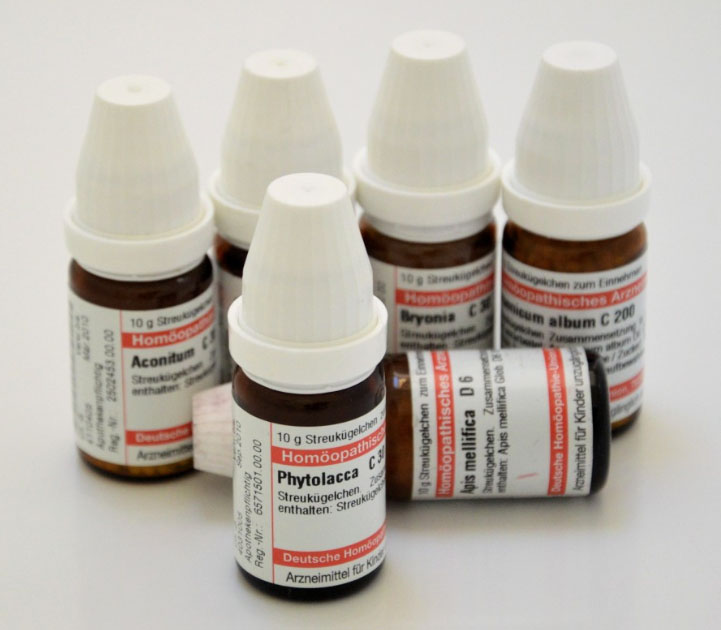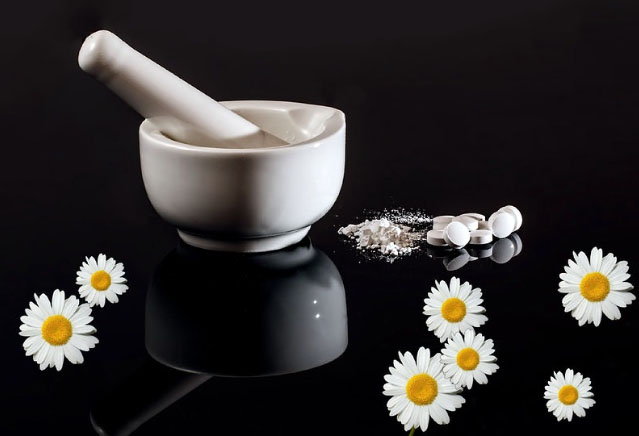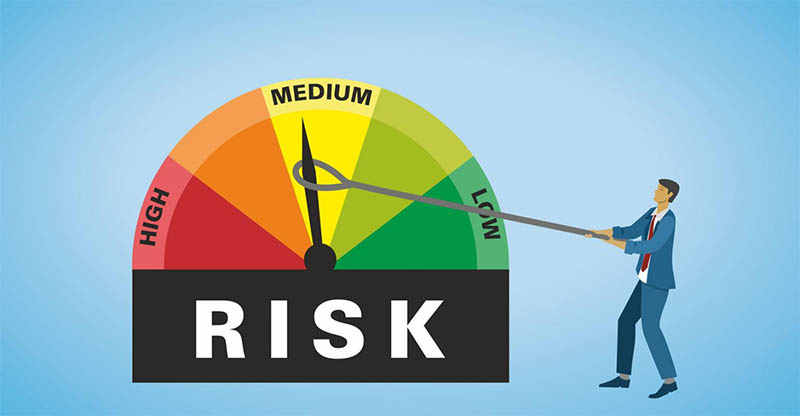If you have heard about the benefits of homeopathy, you could have some questions. This complementary treatment option is controversial, while it is praised by some there are others that criticize this medical system. So before you decide to choose homeopathy ahead of more mainstream treatment options, what should you know about it?
Contents
What is Homeopathy?
 Homeopathy was first developed in the late 1700s in Germany, and it is a medical system focused on the belief that the body can heal itself.
Homeopathy was first developed in the late 1700s in Germany, and it is a medical system focused on the belief that the body can heal itself.
Natural ingredients are included in homeopathic remedies, like minerals or plants. Believers in these remedies claim that the ingredients stimulate healing.
The idea is that something that creates similar symptoms in a healthy person, can treat an illness or disease with similar symptoms. A minimal dose, in fact, an incredibly tiny amount of ingredients is used to create the remedies, and these are supposedly triggering natural defenses in the patient.
An example of this is the onion used to treat allergies. Since onions make your eyes water, and allergies often do the same, it is believed that this will trigger the body’s defenses to prevent the allergies from happening.
Some surprising ingredients used in homeopathic remedies include things like crushed bees, arsenic, poison ivy, and even heavy metals.
What Ailments is Homeopathy Used For?
Homeopathy is used to treat many health conditions, this includes:
- Arthritis
- Depression
- Toothache
- Allergies
- Bruises
- Irritable bowel syndrome
- Colds
- Migraines
Homeopathic treatments exist for many different health problems. However, it is not recommended to use homeopathic remedies for serious and life-threatening conditions, and certainly not for emergency situations.
There are homeopathic remedies known as “nosodes” which are marketed as alternatives to vaccination. There is no evidence whatsoever to show that these alternative vaccinations actually do anything or provide any protection to the patient.
How are Homeopathy Remedies Created?
Sometimes the remedies are created by homeopathic doctors, who usually aren’t properly qualified doctors and are often referred to as homeopaths. There are also manufacturers of these remedies. They take the ingredients that are supposed to trigger the body’s defenses and dilute them.
The process of weakening the potency of these ingredients uses water or alcohol. The process is called potentization and involves shaking the mixture. Homeopaths believe this mixing somehow transfers the healing potential from the ingredients to the water.
Homeopaths also believe that the less active ingredients in the remedy, the better it will actually work. To achieve this, the ingredients are ground down finely into double distilled water and alcohol mix, or a milk sugar mix.
These homeopathic remedies are then repeatedly diluted many times over. It starts with a one part ingredient to 10 parts water, which is known as 1:10 or 1X. Other solutions might be diluted at 1:100 (1C) or 1:1000 (1M).
This solution might then be shaken or pounded in a process known as succussion, and a drop of this is then taken and diluted once again to 1:10, 1:100, or 1:1000. This can be repeated many times over to produce the required strength, though, at a certain point, there will be nothing of the original ingredients left in the liquid. The solution is then sprayed onto tablets to allow it to be taken.
 The remedies are diluted so much so that there are no active ingredients in the solution whatsoever. In effect, homeopathic remedies contain no molecules from the original ingredients and are essentially just water.
The remedies are diluted so much so that there are no active ingredients in the solution whatsoever. In effect, homeopathic remedies contain no molecules from the original ingredients and are essentially just water.
However, this isn’t always the case, with some homeopathic treatments containing large amounts of ingredients. There have been some homeopathic treatments that contain heavy metals in large amounts, like homeopathic teething tablets that the FDA had to warn against.
Proving Treatments
The ingredients used in these remedies aren’t chosen at random, instead, they use a process known as proving. This involves giving the ingredient to a healthy person and observing the outcome. Any changes, symptoms, or even sensations felt by the guinea pig will be documented and used to support using the ingredient as a treatment.
This method is derived from the founder of homeopathy, Hahnemann, who did this with cinchona bark, otherwise known as quinine. Quinine was a well-known treatment for malaria at the time, and he took this, developing symptoms similar to malaria. This is the basis for the theory behind homeopathy, where something that causes similar symptoms will treat illnesses that also create those symptoms.
When an ingredient creates symptoms that are like those of an illness, it is considered proven. The idea is that this ingredient will trigger a response in the body that will help fight the illness, and alleviate, then remove the symptoms.
Does Homeopathy Really Work?
As you might imagine, a medical treatment that contains no active ingredients is certainly going to be controversial. While there is some research to suggest homeopathic treatments do work, it would be interesting to know who funded that research. It could have been funded by the homeopathic industry, and consequently, the results would likely be biased.
Homeopaths claim that water has a memory of the active ingredients that were once within it. They also believe that the more dilution, the better, creating a more powerful remedy. However, there is no scientific evidence to support any of these beliefs.
Consequently, there are many critics of homeopathy and the remedies it sells. They claim that any benefits provided by homeopathic remedies are an example of the placebo effect.
The placebo effect is when the patient’s symptoms lessen because they believe the treatment is going to work. The idea being that the body releases chemicals that help reduce symptoms and pain. The patient might also report fewer symptoms because of their belief in the treatment and the homeopaths that provide it.
Also, typically homeopaths will give more attention to their patients than regular doctors would. Appointments with homeopaths are normally longer than other appointments with regular medical professionals. This additional attention, that allows the patient to be listened to more, could also help produce better results.
Are There Any Risks?
In many cases, it doesn’t really matter if homeopathy works or not. When it is only being used for minor ailments the downsides are not going to be that much. But if it is being given to people with conditions like heart disease or cancer, then the consequences could be very grave indeed.
Since most homeopathic remedies contain no active ingredients, there’s no real danger from the remedies themselves. The only danger is that they don’t do anything to treat the illness and it gets worse. If it is being used for something like a cold, this isn’t going to matter, but for something more serious, a lack of treatment could be more of a problem.
There are some homeopathic remedies that do contain large quantities of active ingredients, and they could potentially be very dangerous in and of themselves, regardless of whether they actually do what they claim to do. There can be some fairly alarming ingredients in homeopathic products like heavy metals and arsenic that could produce some very serious harm to the patient.
Buying Homeopathic Remedies
Homeopathic remedies are widely available online as well as visiting a homeopath by appointment. However, it is possible to buy medicine, whether homeopathic or not, that isn’t from reputable pharmacies.
 If you do end up buying pills that aren’t from a reputable source, you could regret it. The tablets might not include the ingredients they should and the result of this could be serious. You could suffer unexpected results that will make the savings you might have made seem inconsequential.
If you do end up buying pills that aren’t from a reputable source, you could regret it. The tablets might not include the ingredients they should and the result of this could be serious. You could suffer unexpected results that will make the savings you might have made seem inconsequential.
To avoid purchasing from unreliable suppliers, pharmacy reviews 2022 can be used to guide you in the right direction. While it might not be obvious to you when you are looking at a scam drugstore, it is clearer to the creators of pharmacy reviews 2022. There are large differences between reputable drugstores and those that will steal your money or send you terrible products.
Looking for the cheapest price isn’t always the best option when you are looking to buy meds online, whether they are homeopathic or not. But one pharmacy website can look much the same as any other, so it is easy to be taken in by scam drugstores.
Conclusion
Homeopathy has a long history and many people swear by it as an effective treatment for many ailments. However, the idea behind this medical system doesn’t line up with any other science and hasn’t been proven in the same way mainstream medicines have.
Despite the problems, it is a medical area that does appear to produce beneficial results for many people, regardless of the real reason.
If you decide that homeopathy is right for you, make sure you talk to your doctor about it. They will be able to advise you about possible interactions with drugs you are already taking, and if it makes sense in your case. While homeopathic treatments aren’t necessarily highly-priced, savings can still be made online, and using pharmacy reviews 2022 should ensure you order the pills from a reputable source.






